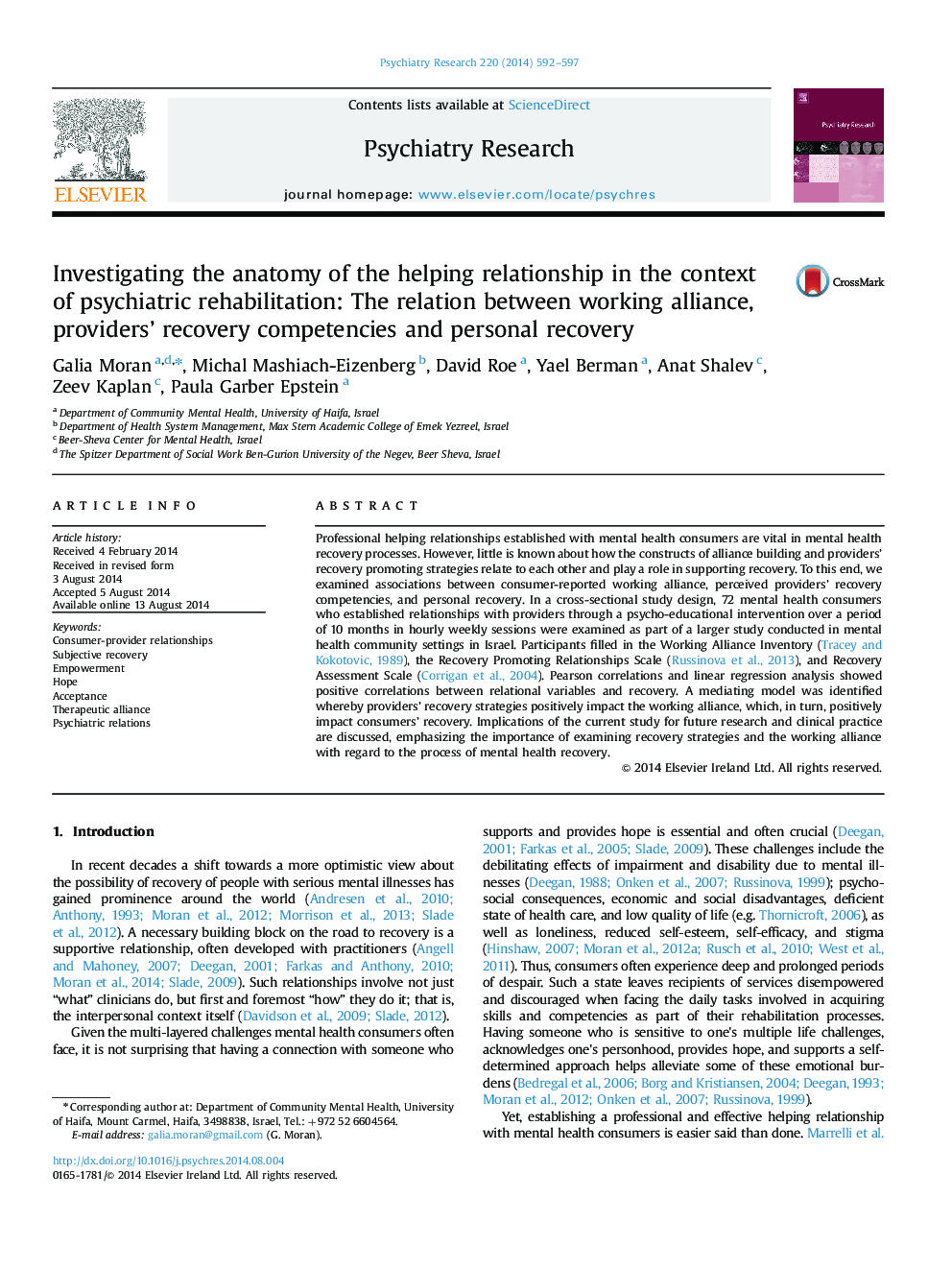| Article ID | Journal | Published Year | Pages | File Type |
|---|---|---|---|---|
| 6815103 | Psychiatry Research | 2014 | 6 Pages |
Abstract
Professional helping relationships established with mental health consumers are vital in mental health recovery processes. However, little is known about how the constructs of alliance building and providers' recovery promoting strategies relate to each other and play a role in supporting recovery. To this end, we examined associations between consumer-reported working alliance, perceived providers' recovery competencies, and personal recovery. In a cross-sectional study design, 72 mental health consumers who established relationships with providers through a psycho-educational intervention over a period of 10 months in hourly weekly sessions were examined as part of a larger study conducted in mental health community settings in Israel. Participants filled in the Working Alliance Inventory (Tracey and Kokotovic, 1989), the Recovery Promoting Relationships Scale (Russinova et al., 2013), and Recovery Assessment Scale (Corrigan et al., 2004). Pearson correlations and linear regression analysis showed positive correlations between relational variables and recovery. A mediating model was identified whereby providers' recovery strategies positively impact the working alliance, which, in turn, positively impact consumers' recovery. Implications of the current study for future research and clinical practice are discussed, emphasizing the importance of examining recovery strategies and the working alliance with regard to the process of mental health recovery.
Related Topics
Life Sciences
Neuroscience
Biological Psychiatry
Authors
Galia Moran, Michal Mashiach-Eizenberg, David Roe, Yael Berman, Anat Shalev, Zeev Kaplan, Paula Garber Epstein,
